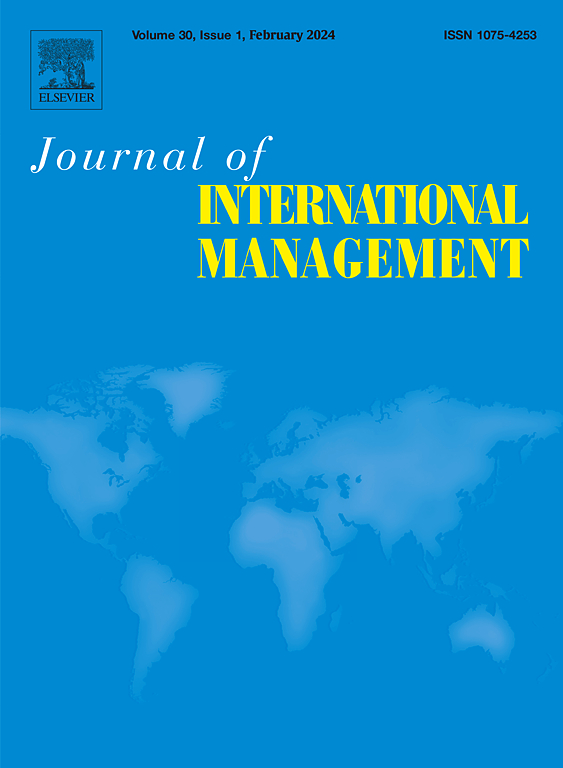Building resilience amidst geopolitical tensions: The case of U.S. MNE subsidiaries in China
IF 4.9
2区 管理学
Q1 MANAGEMENT
引用次数: 0
Abstract
This study investigates how foreign subsidiaries build resilience amid home-host geopolitical tensions. Drawing on resilience and geopolitical risk management literature, we conduct an in-depth qualitative analysis of four U.S. MNE subsidiaries in China. Building on our findings, we propose a model of subsidiary resilience as a capability-building process that unfolds across three stages: before, during, and after geopolitical disruptions. Our results reveal two distinct resilience trajectories. Subsidiaries that exhibit a transformative resilience cycle engage in promotive resistance before disruption, followed by proactive adaptation during disruption and deep-level learning afterward, enabling them to ‘bounce forward’ to a stronger state. In contrast, subsidiaries following a stabilizing resilience cycle adopt defensive resistance, reactive adaptation, and surface-level learning, resulting in a return to pre-crisis conditions (‘bouncing back’). These findings uncover the critical processes determining whether and how subsidiaries maintain resilience over time. The paper concludes with implications for both research and practice.
在地缘政治紧张局势中建立弹性:以美国跨国公司在华子公司为例
本研究探讨了外国子公司如何在本土地缘政治紧张局势中建立弹性。根据弹性和地缘政治风险管理文献,我们对四家美国跨国公司在中国的子公司进行了深入的定性分析。基于我们的研究结果,我们提出了一个附属弹性模型,作为一个能力建设过程,该过程分三个阶段展开:地缘政治中断之前、期间和之后。我们的研究结果揭示了两种不同的弹性轨迹。表现出变革弹性周期的子公司在颠覆之前会进行促进性抵抗,然后在颠覆期间进行主动适应,之后进行深度学习,使它们能够“向前弹跳”到更强大的状态。相比之下,在稳定弹性周期之后的子公司采取防御性抵抗、反应性适应和表面学习,从而恢复到危机前的状态(“反弹”)。这些发现揭示了决定子公司是否以及如何随时间保持弹性的关键过程。本文的结论对研究和实践都有启示。
本文章由计算机程序翻译,如有差异,请以英文原文为准。
求助全文
约1分钟内获得全文
求助全文
来源期刊

Journal of International Management
MANAGEMENT-
自引率
9.80%
发文量
67
审稿时长
81 days
期刊介绍:
The Journal of International Management is devoted to advancing an understanding of issues in the management of global enterprises, global management theory, and practice; and providing theoretical and managerial implications useful for the further development of research. It is designed to serve an audience of academic researchers and educators, as well as business professionals, by publishing both theoretical and empirical research relating to international management and strategy issues. JIM publishes theoretical and empirical research addressing international business strategy, comparative and cross-cultural management, risk management, organizational behavior, and human resource management, among others.
 求助内容:
求助内容: 应助结果提醒方式:
应助结果提醒方式:


